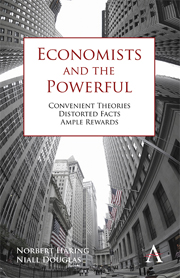Chapter 6 - The Power to Set the Rules of the Game
Published online by Cambridge University Press: 05 February 2013
Summary
A democracy is nothing more than mob rule, where fifty-one percent of the people may take away the rights of the other forty-nine.
—Thomas JeffersonIf liberty and equality, as is thought by some are chiefly to be found in democracy, they will be best attained when all persons alike share in the government to the utmost.
—AristotleWhen the victorious French revolutionaries unseated the monarchy and introduced democracy, they were careful not to go overboard. Only men aged more than 25 who owned a certain minimum wealth were allowed to vote. The founding fathers imposed similar restrictions in the US. They restricted voting rights to property owners. In the UK, only one in seven adult males was allowed to vote in the years after 1832. In 1884, 40 percent of male adults were still disenfranchised. In Prussia, a three-class franchise system (Dreiklassenwahlrecht) was introduced after the revolution of 1848 for the election of the Lower House of the Prussian state parliament. It was completely abolished only after the revolution of 1918. Those paying a third of all taxes were allowed to select a third of electors, those paying the next third selected another third of electors with their vote and those paying the last third chose the final third of electors. According to Anderson (1981), in 1849 the first class constituted 4.7 percent of the population, the second class 12.7 percent and the third class 82.6 percent.
- Type
- Chapter
- Information
- Economists and the PowerfulConvenient Theories, Distorted Facts, Ample Rewards, pp. 207 - 220Publisher: Anthem PressPrint publication year: 2012



